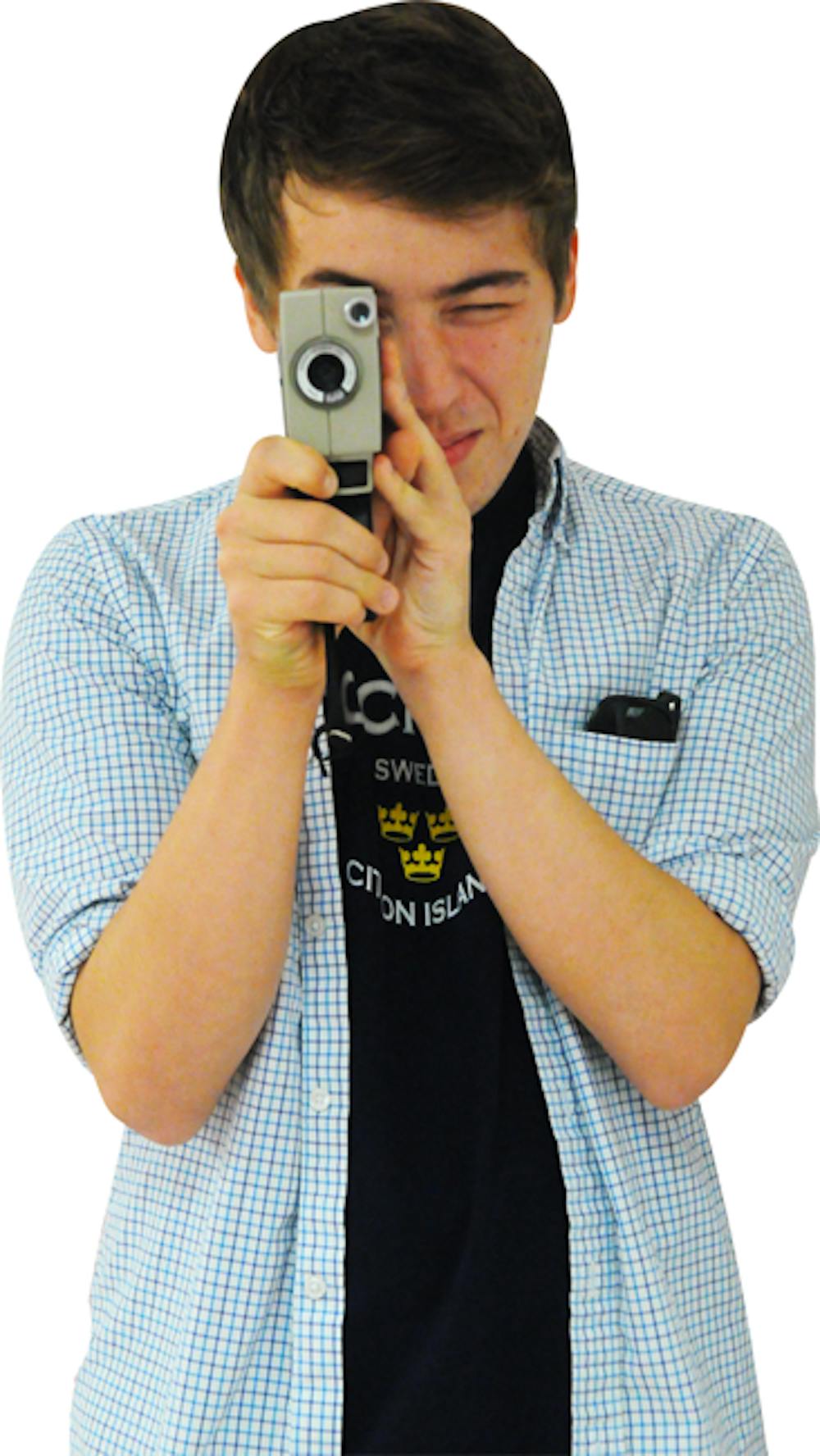Kevin Hudson, a junior English major and literary chair of the Alpha Delta Phi Society, spent five weeks in Sweden and France this summer making a film. The movie, tentatively called “Sara,” is Hudson’s first feature–length film. It is currently being edited and will hopefully be finished by winter break.
Street: How did your filmmaking journey come about? Kevin Hudson: I spent last winter break giving myself a crash course in international cinema. After seeing "Wild Strawberries," I got stuck on Ingmar Bergman. I learned that his biggest influences are unquestionably the Swedish modernist playwright, August Strindberg, and the grandfather of Swedish cinema, Victor Sjostrom, the silent movie director who made his last foray in Swedish cinema as the curmudgeonly protagonist in "Strawberries." So I read Strindberg’s "From an Occult Diary" and portions of his plays. I’ve always gravitated to psychopathy, and Strindberg could be the poster boy of paranoid psychosis. The specific quote that inspired our film is from Strindberg’s preface to "A Dream Play."
Our project anchors on the terror of dreams and the bleakness of reality. Sjostrom enters this conversation because his silent films from the 20s, like "The Phantom Carriage" or "The Wind," show Sweden in the most haunting light. I thought if I was going to be so damn arrogant to try to add my name to this list of Swedes, I’d have to go to Sweden to do it. Not that being in Sweden gives my work any real saliency in this cultural conversation between brooding Swedes from the 1890s to now. To be clear, our story is not a cultural criticism or analysis. That would be truly arrogant—I’ve only been to Sweden twice—I think our story is universally relevant. But I think it was necessary to delude myself. I needed the confidence booster to get the thing done.
Street: What was the greatest challenge you faced? KH: I guess the greatest challenge was having two–three people doing the jobs of an entire film crew. That was not rewarding at all. Just tiring. For (my collaborator) Catherine and I, the most difficult part of doing film projects has always been finding actors. We both despise acting — though, for practical reasons, she played the lead role in our film. So last spring, I joined the couchsurfing.org community to make contacts abroad. I made tentative dates and contacted about 50 interesting–looking young Swedes. I ended up with five volunteers. They played the major supporting roles and let us sleep on their couches for free. Most of the movie is in English, which was not a problem for our actors who speak colloquial English with ease. But certain intimate moments in the movie are in Swedish, in order to give the actors the opportunity of giving the best possible performances.
This is our first feature–length project. We had previously only done short films. For a project like this, fundraising is always the big issue for both amateurs and professionals. I made a KickStarter campaign to raise $2000, which was actually a lot less than what I needed. I knew from the beginning that I would have to spend everything I had to do the project. We met our goal, but in the end the majority of funds came out of our pockets. So instead of life savings, I now have a camera and hundreds of MOV files to sort out.
Street: What’s the movie about? KH: An American girl, Sara, living in Stockholm, feels stuck in a destructive triumvirate with a narcissistic girl named Asmin and a self–defeating girl named Athena. These supporting characters are meant to represent the psychological states of shame and guilt. To get out of the maelstrom that is their friendship, she runs away to Kiruna, the northernmost city in Sweden. She feels that the impact the three have on each other is damaging to everyone involved. In Kiruna, she attempts to live without other people—that is, to live without friendships because to be a friend is to be used and exposed. Kiruna is so far north that the sun doesn’t set in the summer. The ominous glow torments her as she slips in and out of dreams. The dreams bring her friends to her supposed place of solace while revealing painful things about herself.
In effect, she’s exposed even more by her subconscious and by the midnight sun. And here lies the debacle: to be whored out, used and thus exposed by friends, or to live alone, hopelessly introspective, eating yourself from the inside–out. The denouement of the story is the realization that Sara, in fact, cannot choose. You can’t run away from exposure—it’s like running from the sunlight. Who among us can live alone? An epilogue shows Sara five years later, a sojourner in Paris, and the viewer sees what was/wasn’t resolved.
Street: Is moviemaking more of a hobby, post–grad career path or both for you? KH: I’d say it’s both. As you can tell, I take it very seriously and I’m studying all the time. With each project, I feel I’ve made big improvements, but I still watch a movie like "There Will Be Blood" and start to feel hopeless. It’s like watching the Olympics while training to be an athlete. On one hand, it’s motivating, but at the same time I get very cynical and think: how the hell can I, or anyone, be that good? It’s a constant struggle against that pathetic, Eeyore–esque attitude. At the moment, I plan to apply to some film schools. Hopefully I don’t hate it.
Street: If you could change one thing about your experience what would it be? KH: I would’ve made a rom–com or something. Maybe change the ending so that everyone was a vampire the entire time or something. No one’s gonna watch what we made. I guess it’s not very charming to be so self–interested when you’re not a genius.

